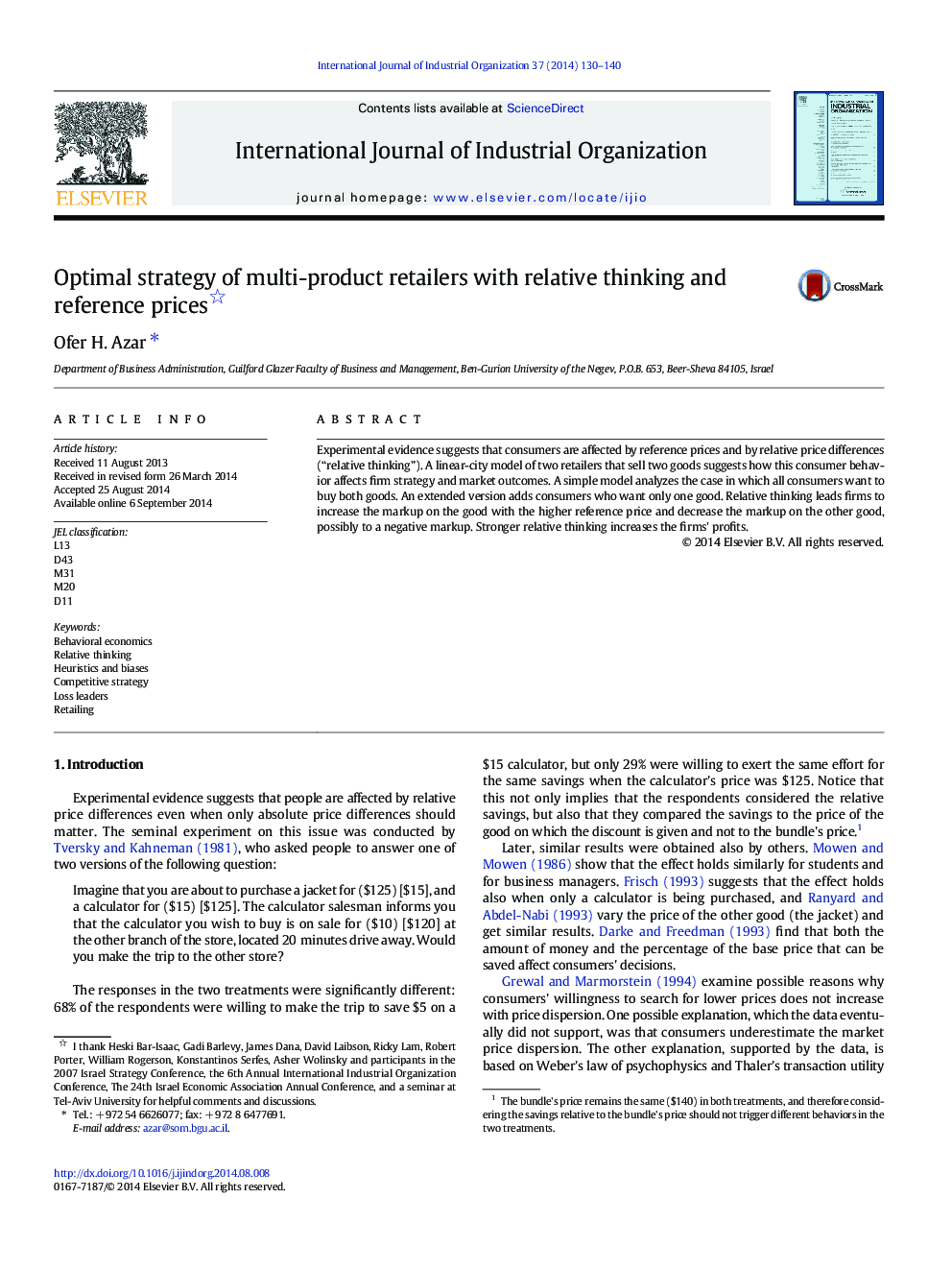| Article ID | Journal | Published Year | Pages | File Type |
|---|---|---|---|---|
| 5077973 | International Journal of Industrial Organization | 2014 | 11 Pages |
Abstract
Experimental evidence suggests that consumers are affected by reference prices and by relative price differences (“relative thinking”). A linear-city model of two retailers that sell two goods suggests how this consumer behavior affects firm strategy and market outcomes. A simple model analyzes the case in which all consumers want to buy both goods. An extended version adds consumers who want only one good. Relative thinking leads firms to increase the markup on the good with the higher reference price and decrease the markup on the other good, possibly to a negative markup. Stronger relative thinking increases the firms' profits.
Keywords
Related Topics
Social Sciences and Humanities
Economics, Econometrics and Finance
Economics and Econometrics
Authors
Ofer H. Azar,
